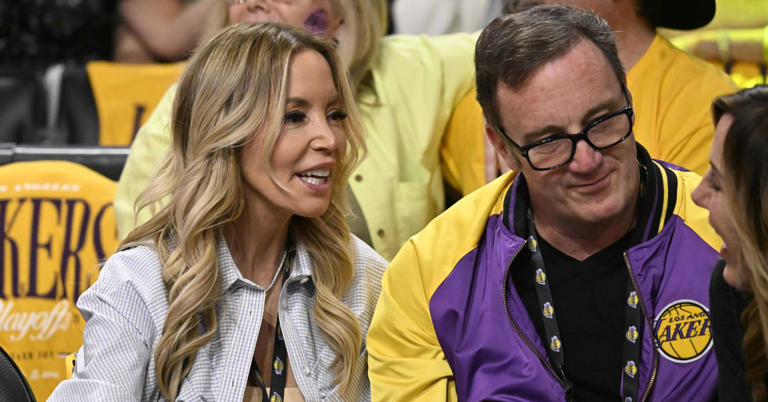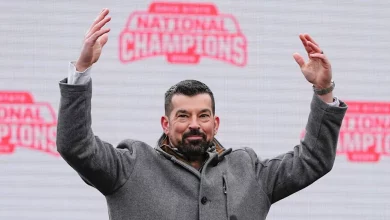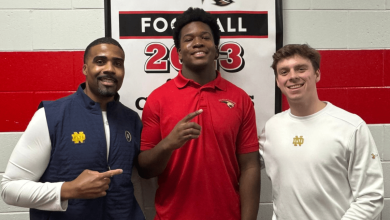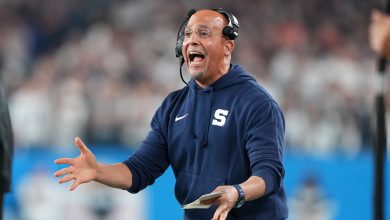Los Angeles Lakers owner Jeanie Buss is nearing a sale of the team to Guggenheim Partners CEO, signaling potential major ownership changes for the franchise.

The Los Angeles Lakers, one of the most storied and iconic franchises in NBA history, are reportedly nearing a significant ownership change. Specifically, Jeanie Buss, the controlling owner and a prominent figure in the franchise’s leadership, is said to be in advanced negotiations to sell the team to the Guggenheim Partners CEO. Such a development marks a potentially transformative moment for the Lakers, a franchise deeply woven into the fabric of basketball and pop culture.
This analysis aims to explore the background of the Lakers’ ownership, the reasons behind the possible sale, the implications for the franchise’s future, and the broader impacts on the NBA landscape. By examining these aspects, we can better understand what this transition represents and its potential ripple effects across professional sports.
The Legacy of the Los Angeles Lakers and Jeanie Buss
The Lakers’ history is a tapestry of legendary players, iconic championships, and cultural influence. Since relocating to Los Angeles in 1960, the franchise has won 17 NBA championships, second only to the Boston Celtics, and has been home to basketball icons like Magic Johnson, Kareem Abdul-Jabbar, Shaquille O’Neal, Kobe Bryant, and more recently, LeBron James.
Jeanie Buss, the daughter of Lakers owner Jerry Buss, inherited the franchise’s leadership after her father’s passing in 2013. She has been a central figure in maintaining the Lakers’ legacy, overseeing operations, and guiding the franchise through both triumphant and challenging seasons. Under her stewardship, the Lakers secured the 2020 NBA Championship, a testament to her leadership and the franchise’s continued relevance.
Jeanie Buss’s ownership has been characterized by a focus on stability, rebuilding, and maintaining the Lakers’ cultural prominence. Her tenure has also been marked by navigating complex league negotiations, managing superstar egos, and balancing the expectations of Lakers fans and the broader basketball community.
The Rumors and Context of the Sale
Recent reports suggest that Jeanie Buss is nearing a deal to sell the Lakers to Guggenheim Partners, a global investment and advisory firm led by CEO Mark Walter. Guggenheim Partners has longstanding ties to the Lakers—Walter has been a prominent owner and supporter for years, and the firm has been involved with the franchise in various capacities.
The potential sale signals a significant shift in ownership structure, possibly marking the end of the Buss family’s direct control over the Lakers’ operations. While the specifics of the deal are still emerging, the move reflects a broader trend in sports ownership where wealthy investment firms and billionaires seek to acquire or invest in major franchises, driven by the lucrative potential of professional sports.
Why Now? Factors Driving the Sale
Several factors could be contributing to the timing and decision to sell:
- Valuation and Market Conditions: The Lakers are among the most valuable NBA franchises, with recent estimates valuing the team at over $4 billion. The rising valuation of sports franchises, fueled by lucrative broadcasting deals, global fanbases, and commercial partnerships, makes selling an attractive proposition for owners seeking liquidity or new investment.
- Jeanie Buss’s Leadership Goals: Buss may be exploring options to ensure the franchise’s long-term stability and success, possibly seeking a partnership with a financially powerful entity like Guggenheim to enhance the Lakers’ competitive edge.
- Family and Personal Considerations: Ownership transitions often involve family dynamics, estate planning, or personal preferences. Selling a franchise like the Lakers could be motivated by a desire to pass the torch, reduce responsibilities, or capitalize on a lucrative offer.
- NBA’s Evolving Ownership Landscape: The league has seen several high-profile ownership transactions recently, including new billionaires entering the fold. The NBA’s global growth and appeal have made franchises highly attractive, prompting owners to consider strategic sales.
Implications for the Lakers’ Future
If the sale to Guggenheim Partners proceeds, it could lead to several significant developments:
1. Stability and Financial Power
Guggenheim’s backing could provide the Lakers with increased financial resources, enabling more aggressive roster moves, facility upgrades, and marketing initiatives. The firm’s experience in managing large-scale investments might translate into a more strategic and innovative approach to franchise management.
2. Operational Changes and Strategic Vision
Ownership changes often bring new leadership styles and strategic visions. Guggenheim’s approach could influence everything from coaching hires to player development, analytics integration, and global branding efforts. This new direction might aim to capitalize on the Lakers’ historical brand while also innovating for future growth.
3. Ownership Philosophy and Culture
The Buss family’s ownership was characterized by a personal touch, deep Lakers-centric culture, and a legacy of family involvement. A transition to a corporate investment firm might shift the franchise’s culture slightly, emphasizing profitability, global branding, and strategic investments. Whether this change enhances or challenges the Lakers’ identity remains to be seen.
4. Fan and Community Reactions
Loyal Lakers fans have a deep emotional connection to the Buss family’s stewardship. A sale to a corporate entity might generate mixed reactions—excitement about potential new investments or concern over losing the personal touch and Lakers’ community roots. Managing this transition will be crucial for the new ownership’s success.
Broader Impact on the NBA and Sports Ownership
The potential sale of the Lakers to Guggenheim Partners fits into a broader trend of increasing involvement by investment firms and billionaires in professional sports. This shift has several implications:
1. Commercialization and Globalization
Ownership by large investment firms accelerates the commercialization of franchises, leveraging global media rights, merchandise, and digital platforms. The Lakers’ global brand could be further expanded under Guggenheim’s stewardship, attracting international sponsorships and fanbases.
2. Financial Incentives and League Dynamics
Ownership groups with deep pockets can influence league decisions, salary cap strategies, and competitive balance. The Lakers, as a flagship franchise, could leverage this to maintain a competitive advantage.
3. Ownership Diversity and League Stability
While the influx of investment firms introduces new capital, it also raises questions about ownership diversity, community engagement, and accountability. The league will need to balance the benefits of corporate ownership with maintaining a connection to local communities and fans.
Potential Challenges and Controversies
As with any major ownership transition, there are potential challenges:
- Maintaining the Lakers’ Legacy: Ensuring that the franchise’s storied history and culture are preserved amid corporate ownership changes.
- Player and Staff Relationships: Transition periods can create uncertainties that affect team chemistry, player morale, and staff stability.
- Regulatory and League Approval: The NBA’s approval process, including league governance and ownership criteria, will scrutinize the deal to ensure compliance and stability.
- Market and Fan Reception: Managing fan expectations and perceptions will be key to maintaining the franchise’s reputation during and after the transition.
Conclusion: A Pivotal Moment in Lakers History
The nearing sale of the Los Angeles Lakers from Jeanie Buss to Guggenheim Partners marks a pivotal moment in the franchise’s history. Rooted in a legacy of excellence, the Lakers are poised at a crossroads—one that could redefine their strategic direction, financial power, and cultural identity.
While the Buss family’s stewardship has contributed to the franchise’s success and stability, the involvement of a global investment firm like Guggenheim offers opportunities for growth, innovation, and enhanced competitiveness. However, it also raises questions about maintaining the Lakers’ unique identity and connection to their passionate fanbase.
Ultimately, this transition signifies the evolving landscape of sports ownership, where legacy, profit, and globalization intertwine. The Lakers’ future under new ownership could be brighter and more dynamic, provided that core values and community ties remain central to their identity.
As the deal progresses, all eyes will be on how the Lakers navigate this change, balancing their historic legacy with the demands and opportunities of modern sports business. Fans, players, and league officials alike await the next chapter in the Lakers’ storied saga, hopeful that the franchise will continue to thrive and uphold its legendary status for generations to come.









